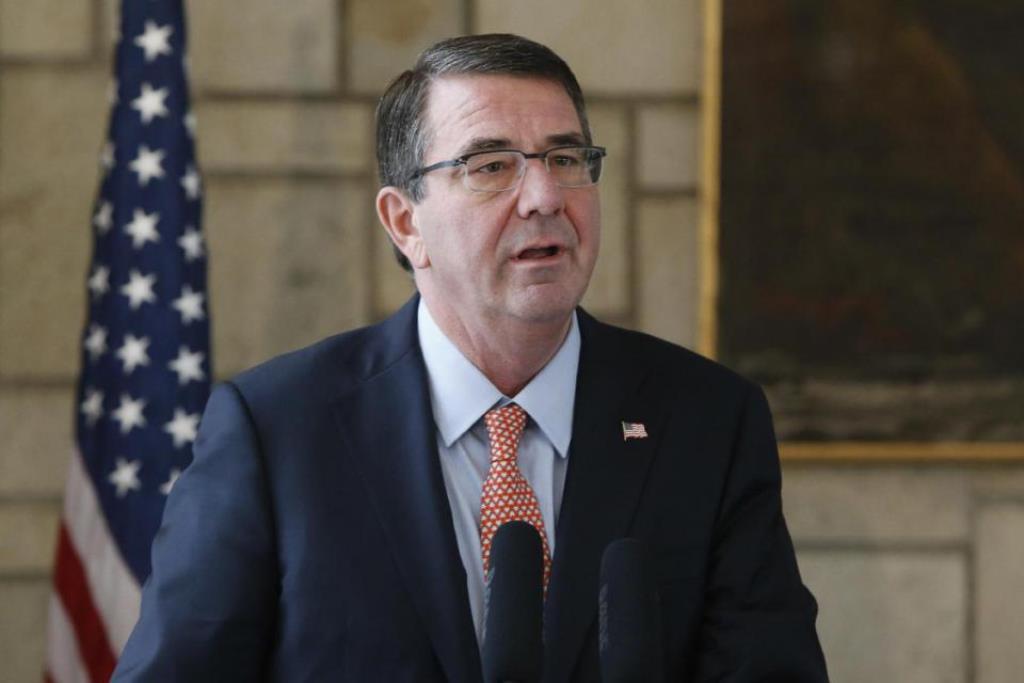
Carter flew to Kuwait City from Afghanistan on Sunday to chair the extraordinary meeting that will see more than two dozen senior military officers and ambassadors gather at the sprawling US Army base of Camp Arifjan, officials said.
Carter, an experienced Pentagon technocrat who took office last week, "wants it to be an open conversation regardless of rank," a senior US defence official told reporters.
The meeting was not intended to produce a new strategy but to allow Carter to better understand the challenge posed by the jihadists and the range of efforts aimed at defeating them, said the official, who spoke on condition of anonymity.
Carter will be looking for an update on all facets of the campaign on both the military and diplomatic front, including the Iraqi government's efforts to recruit Sunnis into the fight against the IS extremists, the official said.
The talks also will examine how to counter the IS group across the region.
Carter likely will raise questions about "what it means when we have groups swearing allegiance to ISIL in Libya, in Egypt, in Afghanistan," said the official using another acronym for IS and "how are we thinking about the next few years of the counter-terrorism fight," the official said.
The meeting will include the commander running the anti-IS campaign, Lieutenant General James Terry, as well as the heads of US Central Command, Africa Command, European command, Special Operations Command and Joint Special Operations Command, said Pentagon spokesman Rear Admiral John Kirby.
Diplomats and civilian officials due to take part include John Allen, President Barack Obama's envoy to the anti-IS coalition as well as the US special envoy to Syria, Daniel Rubinstein, he said.
Washington's ambassadors to Egypt, Jordan, Kuwait, Saudi Arabia and the United Arab Emirates will also attend the meeting.
Senior intelligence officials also will be on hand for talks that are meant to transcend bureaucratic divisions and information "stovepipes," officials said.
Carter told reporters before arriving in Kuwait City that he had called the meeting because he was "trying to assess the situation in Iraq, Syria, and the region more generally".
The IS threat was "a regional issue", Carter said, "and I wanted to have all of that expertise represented".
On his first trip abroad as defence secretary after being sworn in last Tuesday, Carter came to Kuwait after a two-day visit to Afghanistan, consulting commanders about the pace of a US troop withdrawal
1732521023-0/biden-(1)1732521023-0-405x300.webp)
1732520496-0/BeFunky-collage-(86)1732520496-0-165x106.webp)
1732519472-0/lamar-(3)1732519472-0-165x106.webp)
1732519298-0/BeFunky-collage-(85)1732519298-0-165x106.webp)

1732518687-0/Copy-of-Untitled-(78)1732518687-0-270x192.webp)











COMMENTS
Comments are moderated and generally will be posted if they are on-topic and not abusive.
For more information, please see our Comments FAQ